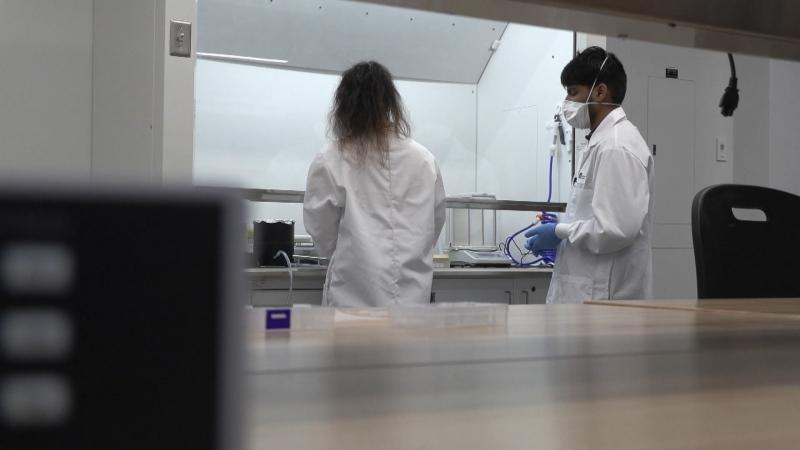
A Simon Fraser University professor has created a network of the world’s greatest energy harvesting experts in an attempt to help tackle climate change.
Vincenzo Pecunia and over 100 internationally recognized scientists are working together to document ways to improve a product that can convert energy into clean power.
«These materials have the ability to convert ambient energy from various sources, including light, heat, radiofrequency waves (like those from Wi-Fi and mobile signals), and mechanical vibrations,» says Pecunia.
He refers to all of this ambient energy as «wasted energy,» and says the small chip can be inserted anywhere energy or friction is produced, including on sidewalks and clothing.
«It’s essential to develop energy-harvesting materials that can efficiently capture this energy and convert it to electricity,» Pecunia says. «Another important priority is to develop energy harvesters that can be applied on all types of surfaces and objects, which requires energy harvesting materials that are mechanically flexible.»
As Canada and countries around the world look to combat climate change while developing goals to achieve net-zero emissions over the next few decades, Pecunia says this technology could come in handy.
Since September, he has been joined by several students who are also contributing to the project.
Javidh Mohammed moved to Surrey from India in the fall, specifically to learn about sustainable energy and obtain his graduate degree.
«My dream is to develop prototypes that involve sustainable energy to help society,» said Mohammed.
He is now receiving hands-on experience in the field and helping pave the way for Pecunia’s vision to become a reality.
At this time, Pecunia says the energy-harvesting technology is only being produced at a small scale, but has the potential to be manufactured in larger qualities.
«We’re at the stage where there are some companies that are being established, and there are some big actors in Canada specifically making those materials and upscaling the production,» says Pecunia.
In the meantime, Pecunia says his team of researchers is working to make the material more efficient, in the hope of rolling it out to the public in the near future.